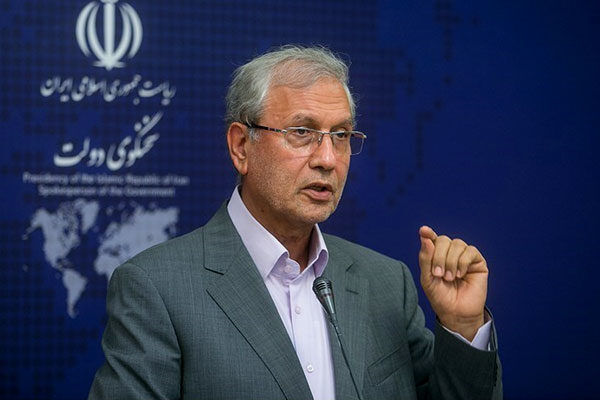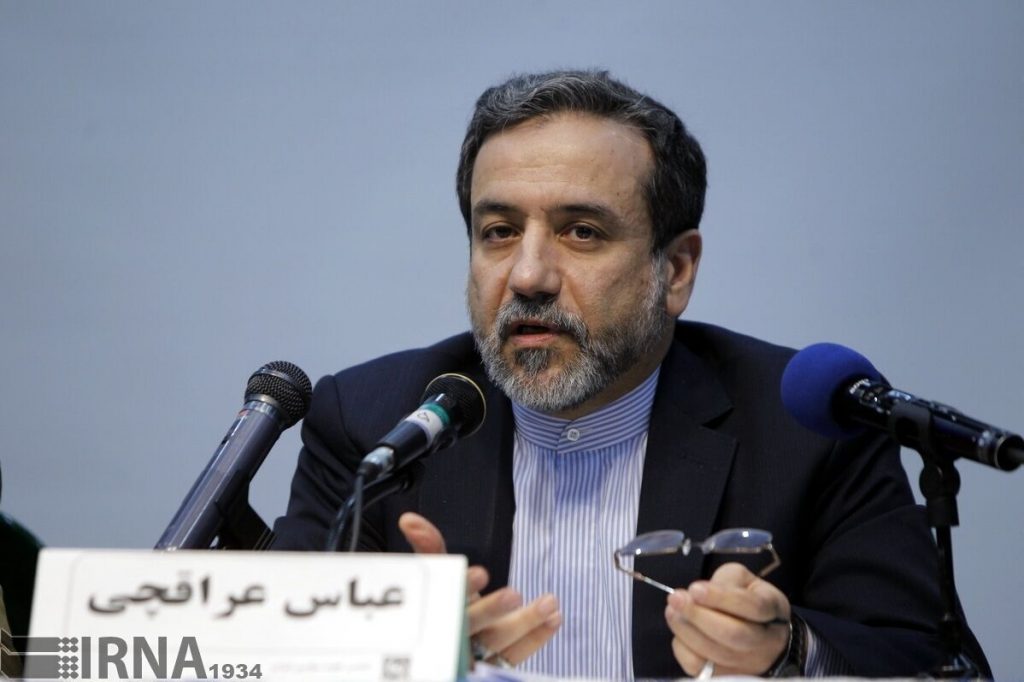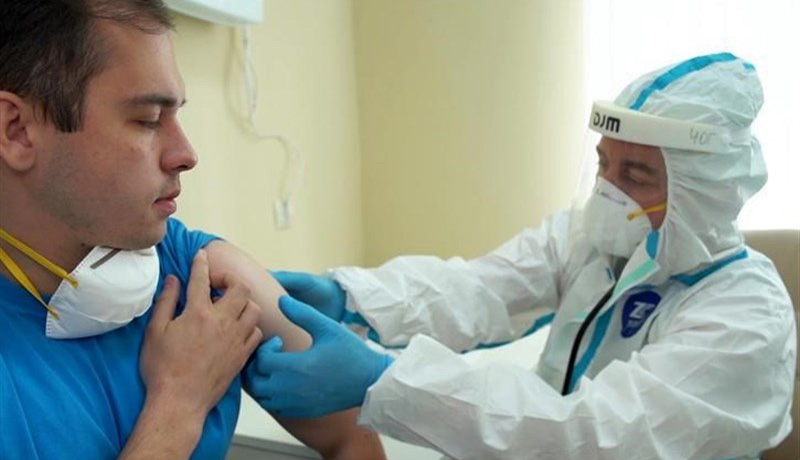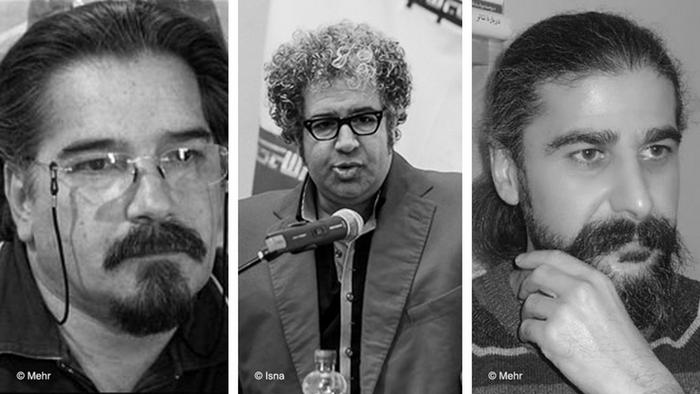
Mr. Zarif, There Is No Strength Left in People!
The editorial of Aftab Yazd addresses Iranian Foreign Minister Mohammad Javad Zarif, telling him that the Iranian people are so concerned with their own serious issues and problems that they don’t have any strength left to defend the Iranian government against its opponents’ attacks on national television.
Airing a television series, Gandoo, which aimed at targeting certain government decisions in foreign policy, stirred up many controversies. It was said that 80 percent of the series’ script was fictional and not real, but the series’ producers claim that it is fully based on real events. Mohammad Javad Zarif criticized the airing of the series, saying it had portrayed downright lies and has created distrust in the country.
But the truth is that given all the difficulties that people are struggling with, it doesn’t seem that important to them whether Gandoo is based on fact or fiction. It is hard to understand those who think that people care about this issue at all.
In other words, perhaps many of those 24,000,000 people who voted for Hassan Rouhani in 2017 might look at Gandoo with skepticism, but one can say with certainty that they don’t have the strength or the motivation for disagreeing with it.
Under the current grave economic circumstances when the price of the dollar has witnessed an eightfold increase in four years, it makes no difference to people whether Gandoo is based on fact or fiction. When the government loses its popular base, then there is no reason for people to defend it.
We must accept that the government is in a weak position due to its poor performance. Moreover, there are many examples which show that the government hasn’t been honest with people. Perhaps, Mr. Zarif should tell the president that people no longer have any strength to disagree with such issues.
Perhaps, Mr. Zarif should tell the president that the Iranian people have more serious concerns than watching a television series – for example, Iran’s recent agreement with China, the content of which is not disclosed to the people.
Mr. Zarif should tell the president that with his silence and banal speeches, he has broken peoples’ hearts so much so that they don’t have any strength to defend him and his team.
Indirect, Protracted Talks With US Is Not to Iran’s Advantage
The editorial of Setareh Sobh, penned by former senior official in Iran’s Foreign Ministry Ghassem Mohebali, explains why Iran should engage in direct negotiations with the United States, as it will help to resolve their differences faster.
The meeting of the JCPOA Joint Commission in Vienna came to an end while Iran, America, Europe, Russia and China have all expressed their cautious optimism, seeing it as a constructive step for continuing the negotiations in coming weeks.
These talks were held indirectly and were a step towards serious negotiations for resuming the JCPOA. Of course, it is questionable whether we should expect these talks to come to fruition promptly, as the existing disagreement between both sides, particularly Iran and America, is a challenge, and we should wait and see how each side intends to address it.
There are two possible solutions in this regard: both sides can return to the JCPOA by fulfilling their commitments to it; or both sides can move ahead step by step. It seems that the Americans are more interested in the second option, which means Iran should gradually fulfill its obligations under the JCPOA, while America gradually lifts the sanctions.
Now both Iran and America do not want to appear as too eager, because the United States sees the sanctions against Iran as its bargaining chip, while Iran uses increasing its uranium enrichment as a leverage. It seems that going back to the JCPOA (2015) will not be the end of the negotiations; rather it will be the beginning of a new round of talks.
One of the questionable issues regarding talks between Iran and America is its being held indirectly. But it seems that Iran will benefit more from holding direct talks with America. That is because as such, it can come to fruition much sooner. Furthermore, indirect talks open the door to consultants and advisers who might be after their own interests. What is more, indirect talks can result in prolonged negotiations, which will not be to Iran’s advantage.
Inflation as Outcome of Mismanagement and Sanctions
The editorial of Arman Melli focuses on how the country’s inflation has been increasing over the past decades, and the fact that nothing much can be done about it unless the scourge of inflation is decisively addressed.
Inflation above 40 percent is not just confined to recent years; rather during past decades, we have witnessed it. It means we have had inflation every year. The country’s economy has been suffering from this disease and in past decades, Iran’s officials in the economic field and the Central Bank haven’t offered any plans in this regard or have taken any steps for treating it.
So, inflation has always been a part of Iran’s economy, while the political, social, and economic circumstances imposed on the country have created fluctuations in the country’s economic growth. Sanctions have been a serious part of these problems.
Inflation and sanctions have turned into a dangerous disease, putting increasing pressure on the poor in society. Inflation during the past few years has been due to sanctions pressure. As a result, people’s purchasing power has decreased, and poverty has increased all over the country.
So, if these sanctions continue, they can increase inflation this year and in the coming years. That is because demands are on the rise in the country, the population is increasing, but the capacities in the country have not developed proportionately. As a result, sanctions aggravate the situation in the country.
If the sanctions continue this year, we can be sure that the official inflation rate will go above 50 percent. Therefore, the key to decreasing and containing inflation is lifting sanctions. Iran cannot increase the level of production in the country or distribute resources in the country because there is no proportionate relation between the requirements and the situation in the country.
Two Giants: Mismanagement and Coronavirus
The editorial of Ebtekar explains why the Iranian people cannot rely on officials for dealing with the fourth surge of coronavirus in Iran, urging that, despite the officials’ mismanagement, the people must work together to defeat the pandemic.
Coronavirus is a pandemic, and a large part of the world is struggling with it. Due to the impact of coronavirus, the world’s economy has shrunk. But what has Iran done in fighting this disease? Where does the National Headquarters for Combating Coronavirus in Iran stand compared to other countries?
Conditions of hospitals, cemeteries, businesses, and, above all, people show that the Iranian people have become exhausted, worn-out and confused during the past year. People have lost trust in this institution because of its short-term restrictions on businesses, wavering in making timely decisions, not fulfilling its commitments, and other such issues.
But – honestly and fairly – what has been people’s share in these incidents, particularly with regard to the fourth surge of coronavirus in Iran? To understand this, we must take a look at the beginning of last year. When restrictions were seriously enforced, businesses were shut down, travel was banned, the level of observing social distancing showed 86 percent growth. And during the new year’s holiday last year, people acted quite differently from this year’s holiday.
People were the same. What was different was that the officials were sending a different message this year: allowing people to go on holiday trips, not properly managing the holiday shopping at the end of the year, allowing gatherings in parks, shopping malls and centers, and religious sites, etc. All these show that there was no serious resolve in fighting the fourth surge of coronavirus in the country.
While these management failures are taking place, Iranian healthcare workers have been working and making sacrifices day and night for more than a year. And officials wouldn’t listen to their demands.
It is only now that the officials are trying to find a solution – too little, too late. All these point to one thing: that the Iranian people are alone, and they must work together to overcome this surge of coronavirus. No one cares for them. They must work together to defeat the two giants of coronavirus and mismanagement.

Several Thousand Centrifuges Destroyed in Natanz Explosion, Say Lawmakers

Head of the Parliament’s Research Center Alireza Zakani says that in the act of sabotage which took place at the Natanz Uranium Enrichment Center on Sunday, “several thousand” centrifuges were damaged and destroyed. He called Iran a “heaven for spies.”
Furthermore, Freydoun Abbasi Davani, head of Parliament’s Energy Commission, announced that the incident took place in the power network of Natanz Uranium Enrichment Center, calling the sabotage operation “very beautifully planned.”
On Sunday, Iranian officials announced that an incident had taken place at Natanz Uranium Enrichment Center, and a few hours later they called it “nuclear terrorism” against this center.
Zakani slammed the security measures at Iran’s nuclear centers, asking why this issue is not taken seriously.
According to American and Israeli media, Mossad, Israel’s national intelligence agency, was involved in the incident at Natanz, and Iran’s Foreign Ministry too has blamed Israel for this incident.
The recent act of sabotage at Natanz took place just one day after Iran’s nuclear officials had announced re-launching a part of this facility after an explosion last year.
According to The New York Times, the Sunday explosion has hit Iran’s uranium enrichment capability so strongly that it might take nine months to resume production of enriched uranium at Natanz.
Meanwhile, spokesperson for the Iranian government Ali Rabiei called for a confrontation with the international community, particularly the IAEA, regarding the sabotage at the Natanz nuclear facility, urging that “appropriate retaliatory measures” will be taken “at the right time” in the “invaders’ land.”
Rabiei asserted that “there is strong evidence” that Israel was involved in this incident.
The spokesperson for the Iranian government stated that such “acts of sabotage” aim at damaging Iran’s technical capabilities, underscoring that the “ultimate objective of sabotage at the Natanz facility was to prevent constructive diplomatic measures.”
Iran is currently involved in indirect talks with the United States in Vienna for both sides to return to their commitments under the nuclear deal (JCPOA).
According to Rabiei, the IR-1 centrifuges that were destroyed in this incident will be replaced with the more advance IR-6 centrifuges, nuclear activities will develop and expand in the country, and Iran will continue on its path in the international domain to overcome sanctions.
Iran to Hike Level of Uranium Enrichment to 60 Percent After Attack at Natanz Nuclear Facility

Amid Vienna negotiations over the revival of the JCPOA, an official in Iran’s Foreign Ministry has made a controversial announcement regarding his country’s nuclear program.
The Foreign Ministry’s political deputy Abbas Araghchi declared that his country would start enriching uranium to 60 percent purity. Araghchi also pointed out that a letter stating this announcement has been sent to the director general of the International Atomic Energy Agency (IAEA).
“In this letter, we announced that we will start enriching uranium to 60 percent purity. The 60 percent enrichment is one of our needs for producing some special drugs, such as radioisotope drugs,” stated Araghchi. He continued: “the technical explanations about these drugs would be provided by the professionals at the Atomic Energy Organization of Iran.”
This senior nuclear negotiator – who is currently in Vienna to attend a meeting with the JCPOA partners – made these remarks two days after an attack at the Natanz nuclear facility. Abbas Araghchi stressed that the Natanz incident has not only strengthened his country’s determination to improve its nuclear capabilities but has also given Iranian officials the upper hand in the current nuclear negotiations. “We announced to the IAEA yesterday that 1,000 new centrifuges will be installed at Natanz,” he noted.
The first Iranian authority who talked about the possibility of enriching uranium with a concentration of 60 percent was Supreme Leader Ali Khamenei in March 2020.
Coronavirus Vaccine Sold on Tehran’s Black Market at Astronomical Prices

While Iran is grappling with the shortage of coronavirus vaccines and only fewer than 1 percent of its population has been vaccinated, these vaccines are being sold on Tehran’s black market at extremely high prices.
According to Tejarat News, dealers in the Nasser Khosrow neighborhood in Tehran sell the vaccine for 50 million tomans to 60 million tomans a dose. This news agency has published a report shedding light on the details in this regard. The dealers tell their customers: “There is no vaccine here. I should call my contact at the hospital. He should first take the vaccine out of there. This takes time. It cannot be done in one or two days. You’re not in a rush, are you?”
The report says dealers sell the Russian Sputnik V vaccine. Some of them even ask customers: “How many doses do you need?” And others ask clients to call later – in one or two weeks – so that the vaccine becomes available.
According to the secretary of an Iranian nursing home, “the coronavirus vaccines have not reached major institutions; they have been instead sent to individuals other than healthcare professionals via some channels.” A physician working at the coronavirus ward of a hospital remarked when he went to get vaccinated, there were some strangers in the vaccination line who were not the medical staff of that hospital.
Meanwhile, Ali Reza Raisi – who heads the National Headquarters for Combating Coronavirus – says the death toll has overwhelmingly risen, with 1,000 people losing their lives daily. As stated by Iran’s Health Ministry recently, 64,764 individuals have died of COVID-19 and more than 2 million have contracted it so far.
The Health Ministry statistics, however, have been repeatedly doubted by other official sources in the country – like Iran’s Medical Council – which estimate the actual tally to be three to four times higher than the announced ones.
Writers to Iran’s Judicial Authorities: You Are Responsible for our Colleagues’ Lives in Jail

More than 300 writers, poets, and cultural activists have written a letter to Iranian judicial officials, holding them accountable for their incarcerated colleagues as well as political prisoners. Advocating freedom of expression, the signatories of this letter have called for the immediate and unconditional release of all dissidents who are currently behind bars in the country.
“Freedom of expression and freedom of the pen is not a crime,” says the letter. “Given the horrifying reports on the coronavirus outbreak at Evin prison and the conditions of some of our colleagues who have contracted this disease, we hold you fully responsible for their life and health.”
The signatories also point out to officials that granting furloughs to prisoners of conscience is “the least measure” they can take to save their lives.
One of these prisoners is Baktash Abtin, a poet and film maker who has been sentenced to six years of imprisonment on charges of “propaganda against the regime” and “assembly and collusion against national security. He is currently behind bars, suffering from COVID-19. The letter urges officials to release Abtin – whose treatment should be definitely done outside prison – with no delay to prevent an “irretrievable catastrophe.”
Reza Khandan Mahabadi and Kayvan Bajan, two members of the Iranian Writers Association, have been incarcerated since October 2020 at Evin prison on the same charges. Kayvan Samimi, editor-in-chief of Iran-e Farda magazine, has been sentenced to three years of discretionary imprisonment, charged with “assembly and collusion against national security.” He is now serving his prison term.
To conclude their letter, the signatories have expressed their hope for the release of “all dissidents, independent cultural activists and writers whose only crime is their firm belief in freedom of expression and freedom of the pen.”
